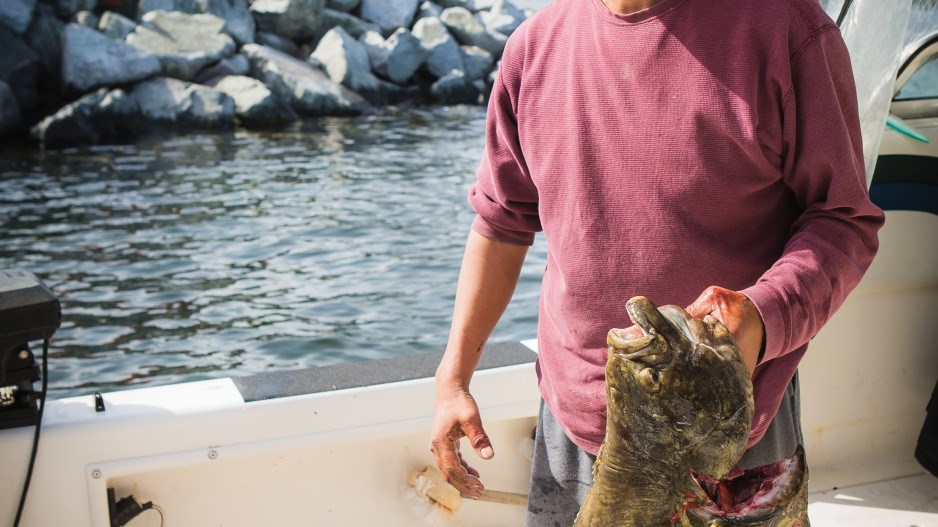It’s dinnertime; do you know where your halibut has been?
Ever since the 2007 bestseller The 100-Mile Diet: A Year of Local Eating, foodies have been on a quest to learn where their delectables were derived.
The latest twist comes with a First Nations flavour.
Ha’oom Wild Seafood recently launched its line of halibut, or Puu?i, along with Ecotrust Canada’s ThisFish tracking program. After they’re caught, the fish are tagged with a code for the consumer to enter online. Moments later, the location and date of the catch and landing are displayed, along with the name of the harvester and method. The website includes nutritional information, recipes and even a message box for sending the fisher a thank-you email.
“Halibut comes with unique management requirements, given that it’s such a high-value species, and one of those is tracking or traceability in the marketplace,” said T’aaq-wiihak First Nations’ fisheries co-ordinator Alex Gagne.
“Also the accountability. Consumers know that this product with the tag came from this exact fishery; it hasn’t been laundered or whitewashed in any way.”
Ha’oom, which means food, is the seafood brand of the T’aaq-wiihak, five tribes under the Nuu-chah-nulth Tribal Council (Ahousaht, Ehattesaht, Hesquiaht, Mowachaht/Muchalaht and Tla-o-qui-aht) on the west coast of Vancouver Island. ThisFish was launched in 2010 by Ecotrust Canada, the year after the Nuu-chah-nulth won a landmark BC Supreme Court case that gave the five tribes the right to harvest any fish species in their territories and sell that seafood. The federal and B.C. governments exhausted their appeals, and the Supreme Court of Canada refused in 2013 to hear the case. The courts didn’t rule on all issues, however. New hearings began last year to determine whether the federal infringement of fishing rights is justified and what, if anything, the government must do to accommodate the First Nations. Gagne hopes there is a ruling by 2017.
Ha’oom piloted commercial fisheries for chinook salmon, gooseneck barnacles and ling cod landed in Tofino and Zeballos. Gagne said the ThisFish relationship could be expanded beyond halibut.
Ha’oom products are primarily sold to Seven Seas in Vancouver and Hub City in Nanaimo, distributors to restaurants and grocery chains. Ha’oom also distributes directly to restaurants in Tofino and from the dock. Blue Water Cafe and L’Abattoir are two locations in Vancouver that have served Ha’oom.
Gagne said Ha’oom sold 7,000 pieces of chinook and 4,000 pounds of gooseneck barnacles last year. It expects that to increase to 7,500 salmon and closer to the quota of 6,000 pounds of gooseneck barnacles. It has a quota of 40,000 pounds of halibut but is going to hit 10,000 pounds through the artisanal market this year, Gagne said.
The fishery brought in $440,000 last year. The recent May 27-31 opening, which included 1,500 pounds of halibut and 1,100 pieces of chinook, grossed $30,000. Gagne said there are 250 fishers designated to participate in the program.
“The nations are very keen; they’ve developed a management plan,” she said.
“Movement’s been quite slow – it’s been focused on salmon, barnacles and halibut. There is a strong interest and right to all species in their territories. They’re really looking forward, once this court process is further along, to exploring those fisheries and developing markets for those products.”




